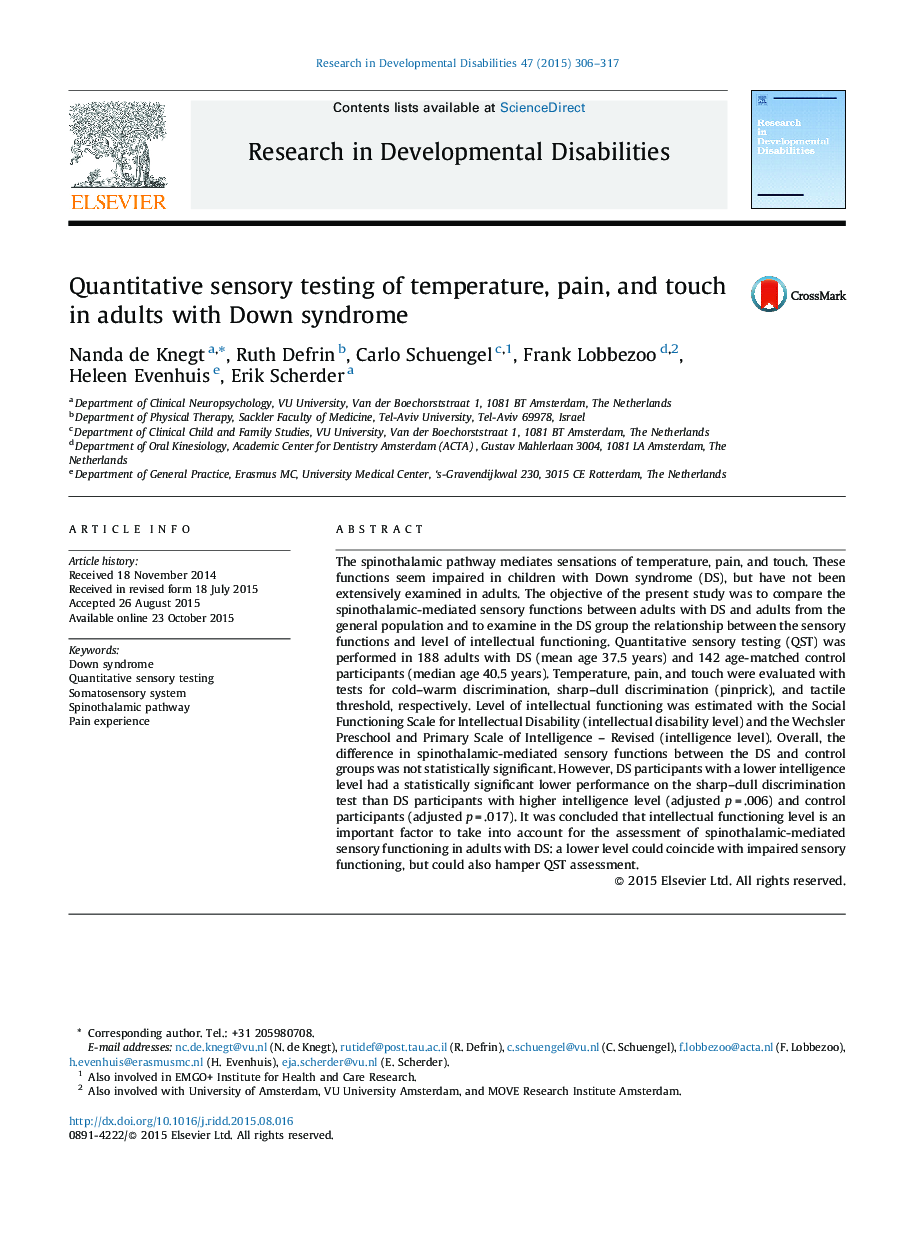| Article ID | Journal | Published Year | Pages | File Type |
|---|---|---|---|---|
| 371140 | Research in Developmental Disabilities | 2015 | 12 Pages |
•Spinothalamic sensory functions may be impaired in adults with Down syndrome (DS).•Quantitative sensory testing (QST) of temperature, pain, and touch was performed.•QST results did not differ significantly between 188 DS adults and 142 controls.•DS adults in a lower intelligence range had less pinprick sensitivity than controls.
The spinothalamic pathway mediates sensations of temperature, pain, and touch. These functions seem impaired in children with Down syndrome (DS), but have not been extensively examined in adults. The objective of the present study was to compare the spinothalamic-mediated sensory functions between adults with DS and adults from the general population and to examine in the DS group the relationship between the sensory functions and level of intellectual functioning. Quantitative sensory testing (QST) was performed in 188 adults with DS (mean age 37.5 years) and 142 age-matched control participants (median age 40.5 years). Temperature, pain, and touch were evaluated with tests for cold–warm discrimination, sharp–dull discrimination (pinprick), and tactile threshold, respectively. Level of intellectual functioning was estimated with the Social Functioning Scale for Intellectual Disability (intellectual disability level) and the Wechsler Preschool and Primary Scale of Intelligence – Revised (intelligence level). Overall, the difference in spinothalamic-mediated sensory functions between the DS and control groups was not statistically significant. However, DS participants with a lower intelligence level had a statistically significant lower performance on the sharp–dull discrimination test than DS participants with higher intelligence level (adjusted p = .006) and control participants (adjusted p = .017). It was concluded that intellectual functioning level is an important factor to take into account for the assessment of spinothalamic-mediated sensory functioning in adults with DS: a lower level could coincide with impaired sensory functioning, but could also hamper QST assessment.
